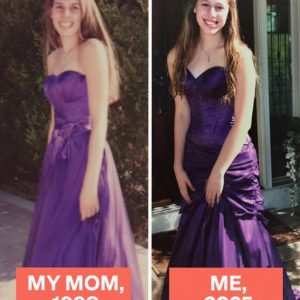Some of the behaviors you live out today may have roots deeper than you think. Often, the emotional wounds that shape us most don’t come from what was said, but from what wasn’t. A lack of eye contact, quiet dismissals, or emotional absence in childhood can echo far into adulthood.
Here are 4 subtle yet powerful signs that love may not have been expressed in your early environment the way it should have been.
1. Struggling with Trust: When Self-Worth Feels Fragile
Growing up without consistent affection is like trying to build a home without a foundation. Children who don’t receive emotional validation often grow into adults who second-guess themselves constantly. Their self-esteem feels shaky, built on uncertain ground.
As a result, they may unintentionally sabotage their happiness, turning down opportunities because they don’t believe they deserve them. And in relationships? Trust becomes a daunting task. After all, if those who were meant to protect you let you down, how do you trust anyone else?
2. Love Feels Foreign — Even Frightening
For someone raised without affection, love can feel unfamiliar or even dangerous. It’s like trying to understand a language you were never taught. Affection, instead of bringing comfort, stirs suspicion. These individuals often question whether others’ feelings are genuine, expecting betrayal or abandonment at any moment.

This fear can lead to extremes—either becoming overly dependent on others or pushing everyone away. It’s a painful contradiction: deeply craving connection while being too afraid to fully allow it.
3. Expressing Needs Feels Unsafe
Those who lacked emotional support as children often learned to hide their feelings—to shrink themselves for the sake of keeping peace. As adults, they may struggle to voice what they truly need or feel. They’re quick to say “yes” when they mean “no,” often absorbing the emotional needs of others while ignoring their own.
Setting boundaries feels impossible. Their feelings were once seen as inconvenient or shameful, so now they minimize or dismiss them, even to themselves. Over time, they may lose touch with what they want altogether.
4. The Lifelong Search for Recognition
Love is more than just meeting basic needs—it’s about being seen, heard, and appreciated. When children don’t receive this recognition, they grow up searching for it elsewhere. Whether through career achievements, validation from peers, or emotionally unavailable partners, they constantly chase a sense of worth.

This constant striving is exhausting. It’s like pouring into an emotional cup that never quite fills—trying to satisfy a need that was never fully met in the first place.
So, How Do You Heal from This?
The comforting truth is: these patterns aren’t permanent. Becoming aware of where they come from is a powerful first step. Healing can take many forms—therapy, self-reflection, community, or simply allowing yourself to receive love in healthier ways.
It’s much like learning to ride again after a fall: it takes time, gentleness, and a lot of self-compassion.
Your Childhood Doesn’t Define Your Destiny
Even if your early years lacked emotional warmth, it’s entirely possible to rewrite your story. Adulthood offers the chance to break cycles, to choose a different path, and to give yourself—and those you love—a deeper, more conscious kind of love.
Because healing is not about erasing the past—it’s about creating a future that feels safer, softer, and more whole.




